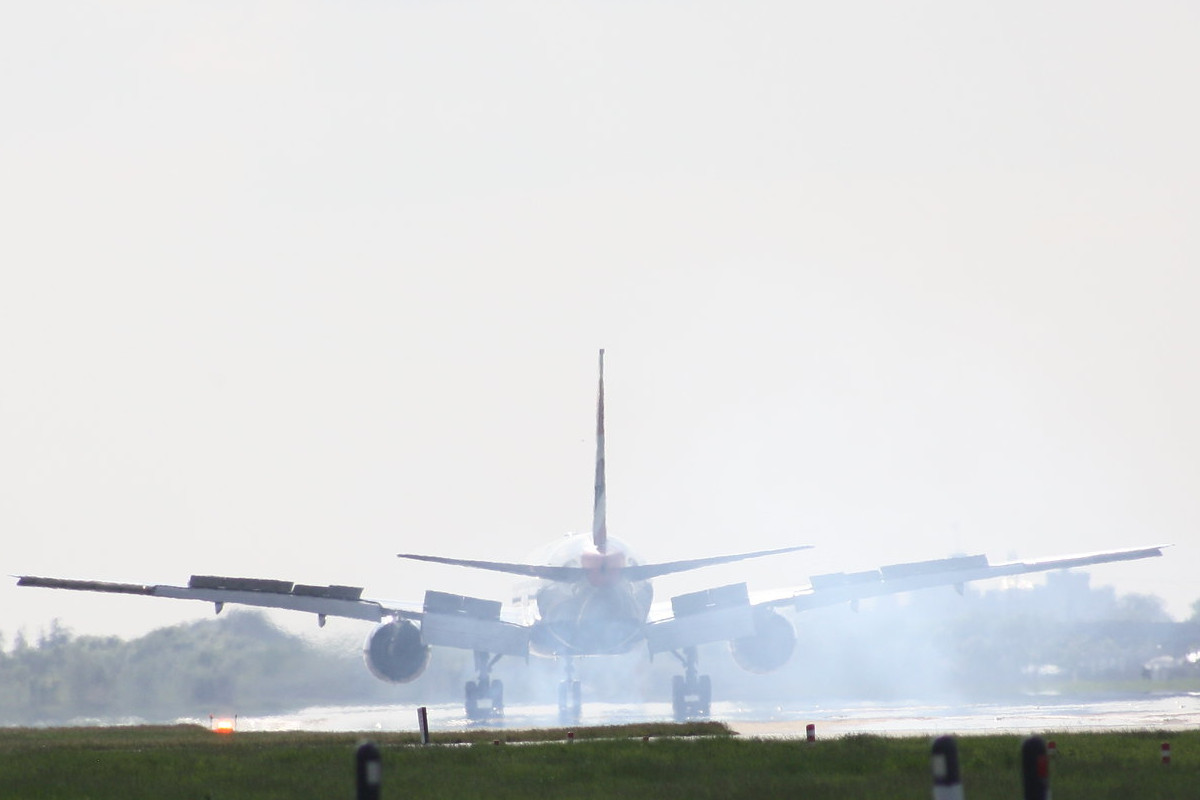Frontex and deportations, 2006-22
30 January 2024
Data covering 17 years of Frontex’s deportation operations shows the expanding role of the agency. We have produced a series of visualisations to show the number of people deported in Frontex-coordinated operations, the member states involved, the destination states, and the costs.

Image: Jason Peper, CC BY-SA 2.0
In August 2020 Statewatch published the report Deportation Union, to provide a critical examination of EU measures designed to increase the number of deportations carried out by national authorities and the European Border and Coast Guard Agency, Frontex. The report focuses on three key areas: attempts to reduce or eliminate rights and protections in the law governing deportations; the expansion and interconnection of EU databases and information systems; and the increased budget, powers and personnel awarded to Frontex. The infographics and data here build upon data compiled for that report, covering the period from 2006 to 2022.
Data collection, compilation and visualisations by Ida Flik.
A note on this update
This article has been updated to include data for 2022 (the previous edition covered the years 2006 to 2021), but we filed an access to documents request with Frontex seeking data from 2006 up until the end of 2022. The information they provided for years prior to 2022 in some cases differs significantly from that used for the previous version of this article. There is, for example, some variation in the number of people deported to different destinations. There are also some substantial differences in the number of people deported, and some minor differences in the total number of operations conducted.
Some of this may be due to errors on our part in compiling the data provided in the first place, which was released by Frontex in the form of non-machine readable PDFs that required substantal amounts of manual transcription. Shortcomings in the data released by Frontex also required that we make estimates for some figures, as we noted in the disclaimer in the dataset released with Deportation Union (available here).
The biggest variations between the old figures and the new are visible in the data on the amount of money spent by Frontex on deportations. The data releaed in response to access to documents requests filed for this article shows amounts of expenditure that dwarf that shown in the data released following access to documents requests filed for the research for Deportation Union. To take just one example, the old data indicated that in 2015 the agency spent €11.2 million on deportations. The new data pushes that figure up to more than €67 million.
These are not the only discrepancies in the Frontex data. The information released in response to requests filed for this article says the agency assisted in the removal of 9,919 people in EU territory in 2022, while Frontex's own report on deportations in the second half of 2022 says that 13,684 people were returned in the months from July to December alone.
We asked Frontex's press office to explain the discrepancies and variations described here, but received no response.
Deporting states and destination states
This graphic provides a visual representation of the 15 EU member states most invested in Frontex’s deportation operations, and the 15 most popular destinations for those operations. Germany is by far and away the biggest user of Frontex’s services, and Albania the primary destination for Frontex-coordinated deportations.
Deportations by year, EU member states and destination states
This graphic makes it possible to examine in more detail the member states involved in Frontex-coordinated deportations to particular destinations. For example: Germany is the only state to have deported anyone to Azerbaijan via a Frontex-coordinated operation since 2019; it is also the only EU member state to have deported anyone to Bosnia via a Frontex coordinated operation since 2018.
Frontex’s financial contributions to member states
Member states can claim back from Frontex the costs they incur for participating in deportation operations coordinated by the agency. This graphic shows how much each participating member state has received each year. As the biggest user of Frontex-coordinated deportation operations, Germany remains by far the biggest recipient of these funds. The total it received in 2022 (more than €20.4 million) is lower than the 2021 total, but still a vast amount of money.
Costs per deportee by destination state
The financial cost of deporting somebody differs depending on the destination state, as shown in this chart. Burundi is now by far the most expensive destination state, though according to the figures provided by Frontex for this update there have been no Frontex-coordinated operations to that country since 2010. The change from last year (when Ethiopia was by far the most expensive destination, with the cost to remove one person to the east African state coming in at over €42,000) is presumably due to the changes in the data described above.
Number of operations and people deported, by year and operation type
This chart shows the number of people deported and the number of deportation operations, by year and operation type. For joint return operations (JROs), Frontex coordinates the actions of multiple member states who wish to deport people to one or more destinations. National return operations involve just one EU member state, but Frontex nevertheless plays a coordinating and financing role. Collecting return operations involve a plane and staff from the destination state travelling to the EU to pick up deportees.
The updated data provided in 2022 contains the abbreviations VRD, VDO and "Humanitarian VR". Frontex did not respond to questions on what exactly these stand for. "Humanitarian VR" is presumably "humanitarian voluntary return," while the VR in VRD may also stand for voluntary return. However, the precise meaning cannot be confirmed without a statement from the agency.
Spotted an error? If you've spotted a problem with this page, just click once to let us know.